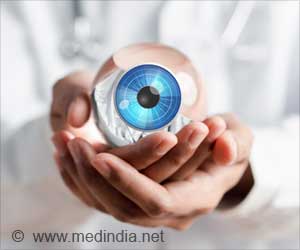Researchers from the University of Granada and the University of Murcia have developed a pioneering device that significantly improves the vision of sight-impaired patients. The device called SERBA (in Spanish, Reconfigurable Electric-Optical System for Low Vision) is especially beneficial for people suffering from pathologies with a slow progression, which can lead eventually lead to blindness—viz. macular degeneration and cataracts.
The researchers claim that their device is the first visual aid unit that is very useful in all circumstances and for all tasks, independently of the degree of impairment of the patient.According to them, the main contribution of this project is the implementation of a new optoelectronic platform (based on a reconfigurable devise known as FPGA), which is easily reprogrammed so that it can be used in different circumstances.
The researchers say that the device will help patients, among other things, to improve their vision when driving. SERBA is based on the design of a real-time video processing system, which is able to store several image processing algorithms. “Thanks to the use of a FPGA it is a very flexible device which can be adapted to the user’s needs and to the evolution of their disease,” say the researchers.
Led by professors Fernando Vargas Martin and Eduardo Ros Vidal, the researchers assessed the device by conducting trials on eight patients suffering from Retinitis Pigmentosa (a visual impairment that reduces the field of vision), and six others with different pathologies that generate a loss of sharpness of vision.
The researchers say that the main advantage of SERBA is that it is easily reconfigured, and that it also offers a “technological convergence”, for it includes light low-cost cameras, real time image processing and transparent portable viewfinders. The creation of this visual aid system has contributed to the creation of bioptical telescopes, anamorphic systems, and inverted telescopes that magnify the patient’s visibility.
Several companies have evinced interest in commercialising SERBA because this system is improving the sharpness of vision and contrast sensitivity, offering an effective field of vision for very restricted visual fields, and facilitating the subject’s mobility, A report on the findings of this research has been published in the journals ‘Lecture Notes in Computer Science’ and ‘International Congress Series’.
Advertisement
LIN/S





